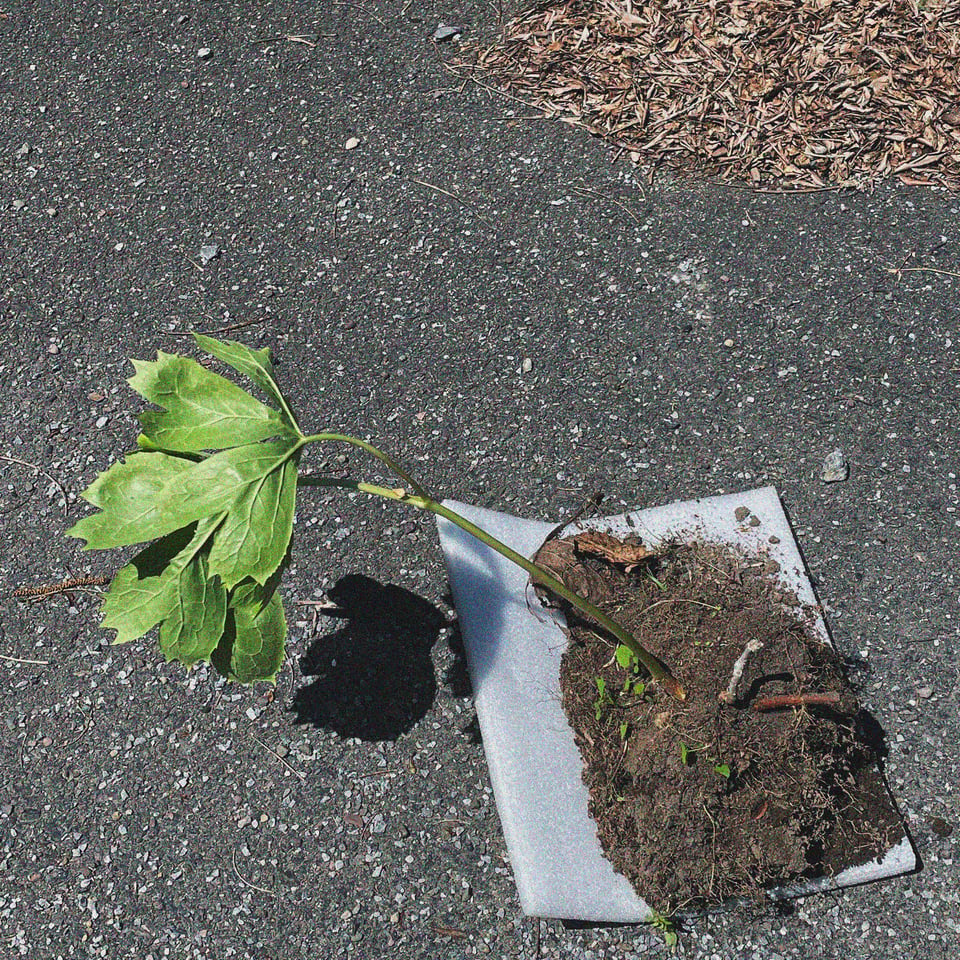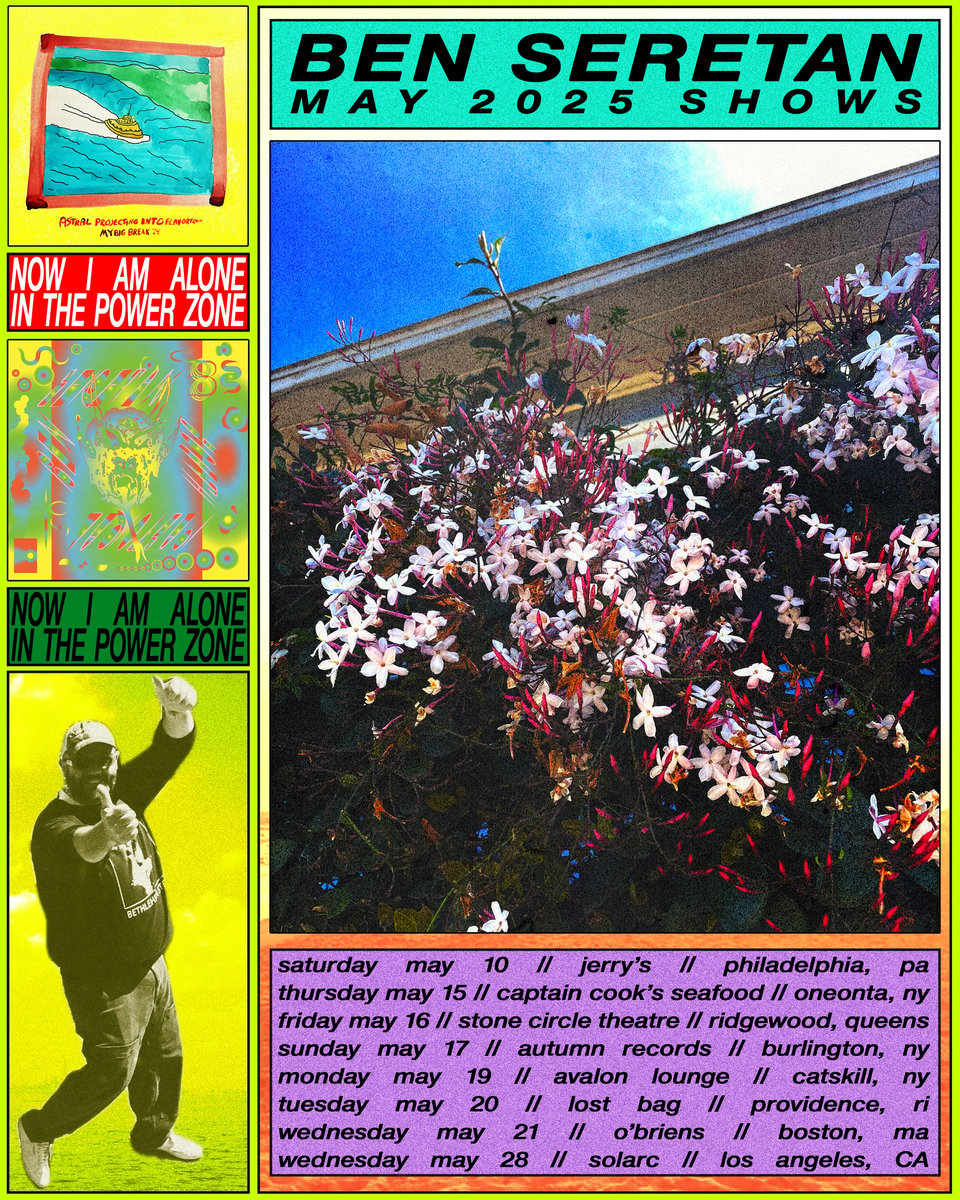good morning ~
(click the link / plant start to listen)

today’s track was made entirely with my piano which I just got tuned and is bringing me a lot of joy :)
hey, I am on tour right now! I’ll be heading to Oneonta, NY shortly - - excited to see what kind of gig awaits us at Captain Cook’s Seafood Market tonight
and we’re gonna be in New York City on Friday, reverberating at the Stone Circle Theatre in Ridgewood, a venue inside a very beautiful church with great acoustics - - I’ll be singing Youth Pastoral songs and tinkling their piano, should be a very special night - plus two of my faves currently open! ticket link here, here’s da flyer:

and here are the rest of my tour dates - - more info on the LA show(s) coming next week I think!

If you've never done it in any serious kinda way maybe you don't realize how much of one's time as a publicly-performing or record-releasing musician is spent convincing other people that they can make money off of you.
This is essentially the action you are performing when you reach out to book a show - hello venue booker or bar owner person, can we play music at your establishment on this particular date? I can demonstrate with various data like my followers on platforms or the nice things music writers have said about me that there is a high likelihood that at least a few people will show up and buy beers and/or buy tickets. And typically when someone invites you to play somewhere, it's because they have at least an inkling that it will be - if not booming - then at least decent business to have you in the doors.
Pitching your record around to labels is a similar exercise in demonstrating market viability. In order to land a record deal, your music has to be of high enough quality and of compelling enough origin to be rendered into merchandise, whether that's streams, physical records, or commercial sync licensing deals. The unexploited potential value of the recorded music must be self evident. You can communicate this through a number of extra-musical ways, like the imagery, or the writing that accompanies the pitch, or by the production quality of the vertical videos you churn out for social media platforms.
And then there are intermediary parties who are part of the cultural production of music, like managers or booking agents. Working with these intermediaries is one pretty reliable shortcut - having a booking agent email a venue on your behalf seems to get your foot in the door a little easier than just hitting up the info@venue.com email from your personal address. Same goes for hooking up with a label - being deemed worthy of having a manager puts you in conversations you wouldn't be having by yourself. And having people in your corner can often lead to better gigs, better treatment. It works as a shortcut because these intermediary people, too, are motivated by making money off of you, and when one person in the industry is invested, it signals to others to go ahead and hop on board.
Of course this is a crude analysis that is taking an Econ 101 approach to a complicated ecosystem of trading the same twenty dollars back and forth. Very few people that make a habit of monetizing music have purely fiduciary motivations. The cold, clammy truth of it is that there's just hardly any money at all out there to even grab at and most people in this world - venues, performers, labels, journalists - are more than likely losing money tugging at what an accountant might consider on paper an expensive hobby. But the fact of it remains - unless you're operating in true love-of-the-game fashion and giving it away for free playing guerrilla style concerts in open air public spaces, we're all out here selling something to some degree, whether its cover charges or cocktails or cultural cache.
The other hand of it is this: you must also work to convince a fanbase that your work is worth supporting with money. And this is a more interesting transaction to me, one that is a little more slippery. Ask yourself - under what conditions do you find it acceptable to pay for music? When you're looking at a list of upcoming gigs in your town, what is your rubric for deciding that you ought to buy a ticket to something? Why do you purchase physical copies of certain music and pirate digital copies of others? What really motivates you - besides charity - to purchase a t-shirt from the merch table?
It's can be quite difficult to achieve objective distance here - it's hard to see your own market motivations, it's like trying to see the small of your back in a mirror. But in my own experience as a music person, I see a surprising amount of yearning for fraternity at the heart of my participation as a listening consumer. In a very real sense, in purchasing a ticket to see a particular band, we are buying our way into their milieu, we are procuring the right to be in the same room as the musicians and their other listeners. When we purchase a record or another piece of physical media, it's impossible not to feel like we are - in a Walt Whitman-esuqe sense - holding a shard of the creator's aura. And when we purchase a band t-shirt, we are literally broadcasting to the world our proud endorsement of that human effort - we purchase the right to do so, to be seen as an insider, like...literally inside a music object fetish item.
We are also motivated to spend money on music we think is beautiful or life affirming or cool or interesting, but I would also argue that what we find beautiful, what we find cool, etc. is very much motivated by communally held and reinforced values, and so even within our own aesthetics we are constantly affirming our in-group identities. By heralding or valuing one album we neglect a thousand others, and why is the cultural labor of one group or individual any more compelling than another? Without dwelling on it too long - it's the world's most photographed barn - there really is a cultural, algorithmic ouroboros emerging. Why is this music good? Why is this music viable for economic exploitation? Because it has many streams. And why does it have many streams? Well, dawg, that is of course because the music is viable for economic exploitation. And around it turns, the wheel and the water falls and we grind our bones to dust. I'm starting to suspect that if you look too closely at any organized human activity you might permanently break your brain, though, so maybe just throw on a chill beats youtube video and get back to work.
But what about you? In what ways are you convincing those that surround you of your economic viability? Why do you buy that particular brand of coffee or cigarette?
You just read issue #253 of My Big Break. You can also browse the full archives of this newsletter.
